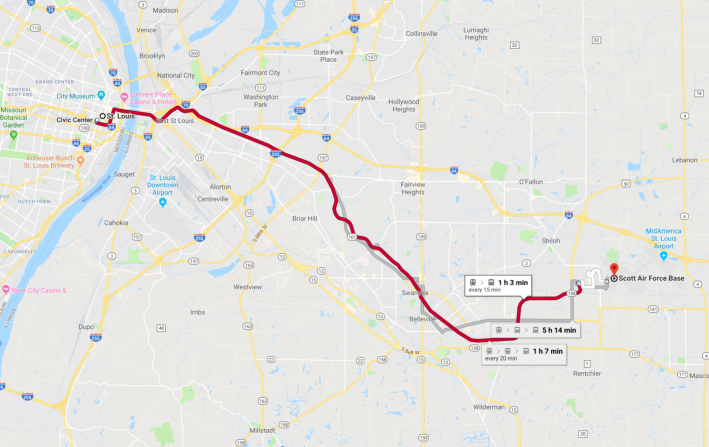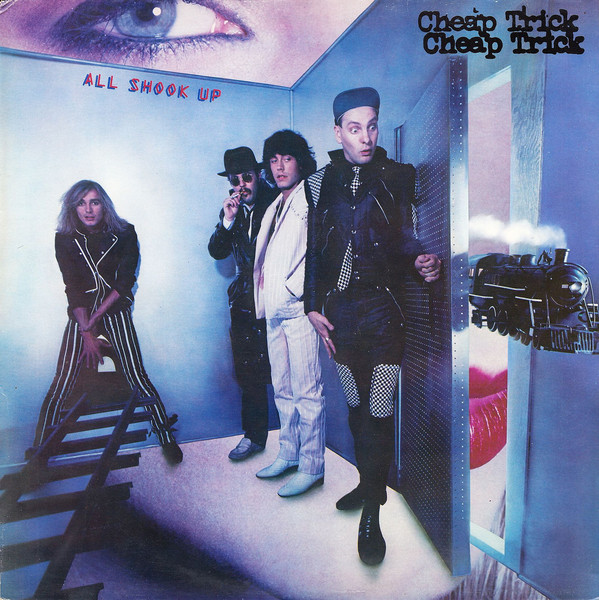Amid the general celebration over the bipartisan passage of Illinois' long-awaited $45 billion Rebuild Illinois capital bill, with a number of wins for sustainable transportation, there were bound to be some naysayers.
Predictably, the conservative libertarian think tank Illinois Policy Institute is grumpy about the various tax and fee increases that will fund the spending package, particularly the doubling of the state gas tax, which has been stuck at 19 cents a gallon since 1990.
But the kookiest hot-take I've seen about the infrastructure bill was from Sun-Times columnist Phil Kadner who made a dubious comparison between the legislation and Ronald Reagan-style trickle-down economics. That theory, which agues that if you slash taxes for wealthy people, it will benefit working-class folks in the long run, was discredited long ago, but it recently reared its ugly head in form of Donald Trump's corporate tax cuts.

Kadner claims that Governor J.B. Pritzker's capital plan represents a variation on that strategy. "In Illinois, the Democratic Party’s theory seems to be if you give the politicians more money, some of it will eventually trickle down to the government programs that actually benefit taxpayers," he writes. "No one is ever held accountable for spending tax money in Illinois."
What's absurd about that claim is that the capital bill specifically earmarks revenue for projects that will benefit the public. Along with funding to construct public buildings and other publics works project, the plan includes a $33 billion, six-year transportation infrastructure program.
More than 23 percent of that money will go to transit, which is less than the 40 percent that was proposed by the Active Transportation Alliance, but about twice as much as was indicated in the initial proposal. And, for the first time ever, $50 million a year will be set aside for walking and biking programs. Here are some of the sustainable transportation projects that received earmarks in the bill, according to Mass Transit Transit Magazine.
The Chicago area's Regional Transit Authority will get $3.6 billion, including the following:
- $100 million for the Kendall County Metra extension
- $60 million for repairs to the Green Line's Cottage Grove station
- $8 million for improvements to the Harvey Transportation Center
- $31.5 million for improvements to the Blue Line's O’Hare branch
- $50 million for tactical traction power upgrades on the O’Hare Branch
- $220 million in capital upgrades for Pace suburban bus service
Downstate transit agencies weren't left out, receiving over $355 million, including $96 million for an extension of the St. Louis area's Metro Link light rail system from Scott Air Force Base (located southeast of East St. Louis, Illinois) to nearby MidAmerica St. Louis Airport.

Several Amtrak projects also received set-asides:
- $100 million for Chicago - Champaign - Carbondale track improvements
- $122 million track improvements in Springfield
- $275 million for new passenger rail service from Chicago to Rockford
- $225 million for new passenger rail service to the Quad Cities
That last item makes it likely that in the future I will increase my intake of malt-crust pizza cut into strips with scissors.

While there aren't any specific earmarks for walking and biking yet, Active Trans estimates that annual $50 million in bike/ped funding could pay for 125 new projects a year, including safety infrastructure like pedestrian islands and better crosswalks, as well as protected bike lanes and multi-use trails.
So relax Phil Kadner, there's no question that the infrastructure bill includes "government programs that [will] actually benefit taxpayers" -- no trickle-down needed.




